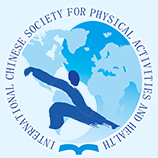Document Type
Abstract
Publication Date
2-2024
Abstract
Purpose: Physical activity has favorable impacts on exercisers' stress levels, psychological distress and anxiety, emotional regulation, and mental wellness. In recent years, the global outbreak of COVID-19 has subtly altered college students' lifestyles. Studies have shown that the physical and mental health of students has deteriorated dramatically, which is alarming. Mental toughness refers to the ability to adapt well in the face of major pressures, setbacks, and adversity in life. The purpose of the present study was to examine variations in mental toughness depending on the intensity, length, and frequency of physical activity. Methods: A total of 3,120 Chinese college students participated in this study. In the spring semester of 2022, participants were given the demographic questionnaire, the Physical Activity Rating Scale (PARS-3), and the Chinese version of the Mental Resilience Scale (CD-RISC). 3049 students completed the survey. Independent sample t test, one-way analysis of variance (ANOVA), correlation analysis, and regression analysis were performed using SPSS 25.0 statistical software. Results: The physical activity level differed significantly across sex (t = 14.37, p < 0.001), grade (F=3.72, p < 0.05), and monthly living expenses (F = 5.70, p < 0.001). The mental toughness had significant differences across sex (t = 4.55, p < 0.001), grade (F = 3.35, p < 0.05), and monthly living expenses (F = 5.41, p < 0.001). There were significant differences in mental toughness across different levels of physical activity intensity (F = 39.28, p < 0.001), different length of physical activity (F = 33.35, p < 0.001), different frequency of physical activity (F = 30.14, p < 0.001), and different levels of physical activity (F = 91.55, p < 0.001). Physical activity was significantly and positively correlated with mental toughness (r = 0.26, p < 0.01). Conclusion: Male students exhibited significantly higher levels of physical activity than their female counterparts, and freshmen demonstrated greater physical activity than students in other grades. Additionally, the amount of physical activity among college students was influenced by their monthly living expenses. The mental toughness score of male students was notably higher than that of female students, with freshmen scoring significantly higher than students in other grades. In comparison to other levels of physical activity, engaging in a high quantity of exercise, high-intensity short-duration exercise, more than 60 minutes of activity time, and a daily activity frequency had the most pronounced impact on enhancing mental toughness. Moreover, there was a positive correlation between physical activity and mental toughness.
DOI
https://doi.org/10.18122/ijpah.3.1.30.boisestate
Recommended Citation
Wang, Ke and Hu, Jiaju
(2024)
"A111: Relationship Between Physical Activity and Mental Toughness: A Cross-Sectional Study Among Chinese College Students,"
International Journal of Physical Activity and Health: Vol. 3:
Iss.
1, Article 30.
DOI: https://doi.org/10.18122/ijpah.3.1.30.boisestate
Available at:
https://scholarworks.boisestate.edu/ijpah/vol3/iss1/30
Included in
Exercise Science Commons, Health and Physical Education Commons, Public Health Commons, Sports Studies Commons



